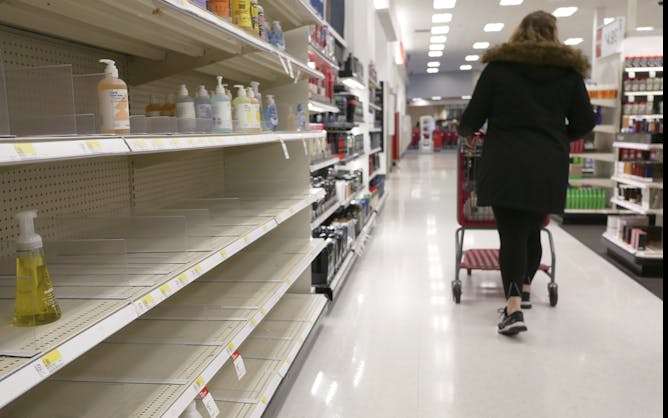|
With university students eager to know how they’ll finish their semesters amid hour-by-hour COVID-19 updates, universities are on the ropes to tell people what’s happening.
Educational technology companies, such as those producing online learning software, believe they’re perfectly poised to help tackle the challenges – maybe even to save post-secondary education in an unstable world.
Today in The Conversation Canada, we’ve got a story from Shandell Houlden and George Veletsianos of Royal Roads University. They say university online learning can be “an effective, rich and fulfilling experience, but it requires us to pay careful attention to student experiences, as well as to take on a critical view of the claims of educational technology companies." As the authors note, flexible and resilient educational systems require more than technology and tools.
Also today:
A reminder that you can always tap into the global network of The Conversation for the latest insights into the COVID-19 pandemic.
Regards,
|

Universities and colleges cancelling in-person classes will need more than technology to have the capacity to offer flexible education.
(Shutterstock)
Shandell Houlden, Royal Roads University; George Veletsianos, Royal Roads University
Online learning can help universities quickly adapt to COVID-19, but policy makers must pay careful attention to student experiences and take a critical view of technology companies' claims.
|

Shelves that held hand sanitizer and hand soap are mostly empty at a Target in Jersey City, N.J. on March 2, 2020. As fears of the pandemic grow, consumers are stockpiling goods in case they’re quarantined.
(AP Photo/Seth Wenig)
Xiaodan Pan, Concordia University; Benny Mantin, University of Luxembourg; Martin Dresner, University of Maryland
Amid the coronavirus outbreak, people are stockpiling essential supplies. But policy-makers may be able to influence both the supply and demand through public announcements and advisories.
|

Workplace-related suicide can have several different motivations. The recent shooting at a Molson Coors plant in Milwaukee may have been fuelled by racism against the perpetrator.
(Shutterstock)
Angus J Duff, Thompson Rivers University
People who take their own lives as a career response have different motives at different stages of their careers. This could help us understand the recent Molson Coors shooting in Milwaukee.
|

Audiences are packing into e-sports games like this August 2018 event in Vancouver’s Rogers Arena .
THE CANADIAN PRESS/Darryl Dyck
Joe Todd, University of Waterloo
Video games are becoming just as popular as professional sports, so why do people think it's only a game?
|

Les gens se ruent pour stocker du papier de toilettes de peur d'en manquer. Pour dissiper le sentiment de panique, les gouvernements doivent porter attention à la manière dont ils communiquent l'information.
shutterstock
Andy J. Yap, INSEAD
Qu'est-ce qui provoque cette peur panique de manquer de papier de toilette, et autres denrées, et quoi faire pour y remédier? Les réponses se trouvent du côté des gouvernements...
|
COVID-19 updates from around the world
|
-
Matthew McQueen, University of Colorado Boulder
Best case estimates suggest 40 million American adults may come down with COVID-19. But an epidemiologist explains why now is not the time to just give up.
-
Christoph Meyer, King's College London
At times of high tension, governments can be cornered into making mistakes by responding to the wrong pressures.
-
Edward Parker, London School of Hygiene & Tropical Medicine; Beate Kampmann, London School of Hygiene & Tropical Medicine
The risks to individuals vary hugely with age.
|
|